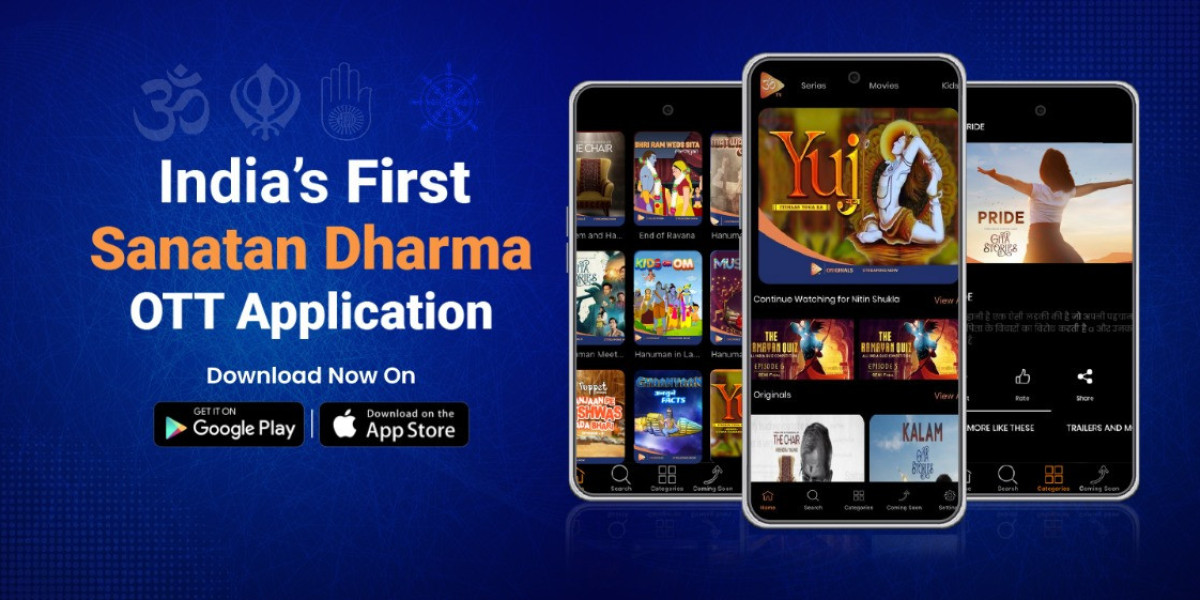Modern Hinduism is a dynamic and evolving spiritual tradition that adapts to contemporary life while retaining its ancient roots. This blog will explore the essence of modern Hinduism, its practices, and how it integrates with today's world. Whether you're a practitioner or simply curious, this overview will provide insights into this vibrant faith.
The Essence of Modern Hinduism
Modern Hinduism retains the core principles of traditional Hinduism but interprets them in a way that resonates with today's society. It emphasizes personal spirituality, inclusivity, and social responsibility. While ancient texts like the Vedas, Upanishads, and Bhagavad Gita remain foundational, their teachings are often seen through a modern lens to address contemporary issues.
Key Aspects of Modern Hinduism
Personal Spirituality: In modern Hinduism, personal spirituality is paramount. Individuals are encouraged to explore their spiritual paths, which might include meditation, yoga, and personal study of scriptures. This flexibility allows followers to find practices that suit their lifestyles and beliefs.
Inclusivity and Equality: Modern Hinduism promotes inclusivity and gender equality. Temples and spiritual gatherings are increasingly welcoming to all, regardless of caste, gender, or background. This shift is a significant departure from some traditional practices that were more restrictive.
Environmental Awareness: Many modern Hindus are deeply committed to environmental conservation. The principle of Ahimsa, or non-violence, extends to the planet, advocating for sustainable living and respect for all forms of life.
Social Responsibility: Modern Hinduism emphasizes the importance of community service and social justice. This includes charitable activities, educational initiatives, and efforts to uplift the underprivileged, reflecting the core Hindu value of selfless service, or Seva.
Practices in Modern Hinduism
Yoga and Meditation: Yoga and meditation are integral to modern Hinduism. These practices promote physical health, mental clarity, and spiritual growth. They are widely adopted not only by Hindus but by people worldwide seeking inner peace and wellness.
Festivals and Rituals: Traditional festivals like Diwali, Holi, and Navaratri are celebrated with a modern twist. These occasions are not just religious observances but also cultural events that bring communities together. Many rituals are simplified to fit contemporary lifestyles while retaining their symbolic meanings.
Modern Temples: Temples in modern Hinduism often serve as community centers. They host cultural programs, educational classes, and social events. Some even provide online services, making spiritual guidance accessible to a global audience.
Influence of Technology
Technology plays a significant role in modern Hinduism. Platforms like Omtvlive have made spiritual content more accessible. Whether it's streaming live temple ceremonies, providing online classes on Hindu philosophy, or hosting virtual satsangs (spiritual gatherings), Omtvlive bridges the gap between tradition and technology. This accessibility helps followers stay connected to their faith, regardless of geographical barriers.
Challenges and Adaptations
Modern Hinduism faces several challenges, such as maintaining tradition while embracing change. Balancing ancient practices with contemporary values requires careful interpretation and adaptation. Issues like religious intolerance and cultural preservation also need to be addressed thoughtfully.
Despite these challenges, modern Hinduism continues to thrive. Its ability to adapt ensures that it remains relevant and meaningful to new generations. By embracing change while honoring its rich heritage, modern Hinduism demonstrates resilience and innovation.
Modern Hinduism in Daily Life
For many practitioners, modern Hinduism is a way of life that influences daily activities. It encourages ethical living, compassion, and mindfulness. Practices like daily prayer, reading scriptures, and engaging in community service are common. The emphasis is on living a life that reflects spiritual values in every action.
Educational Initiatives
Educational programs are crucial in modern Hinduism. These initiatives aim to educate both Hindus and non-Hindus about the religion's history, practices, and values. Schools, universities, and online platforms offer courses on Hindu philosophy, yoga, and Sanskrit, making this knowledge more accessible.
Global Presence
Modern Hinduism has a significant global presence. Indian diaspora communities have established temples and cultural organizations worldwide, spreading Hindu practices and values. This global reach has led to a greater understanding and appreciation of Hinduism internationally.
Conclusion
Modern Hinduism is a living, breathing tradition that evolves with the times while staying true to its essence. It is characterized by personal spirituality, inclusivity, environmental awareness, and social responsibility. Technology, through platforms like Omtvlive, plays a vital role in connecting followers to their faith. Despite challenges, modern Hinduism continues to inspire and guide millions, proving that ancient wisdom can harmoniously coexist with modern life. Whether you are a practitioner or an admirer, modern Hinduism offers valuable insights into leading a balanced, ethical, and spiritually enriched life.








